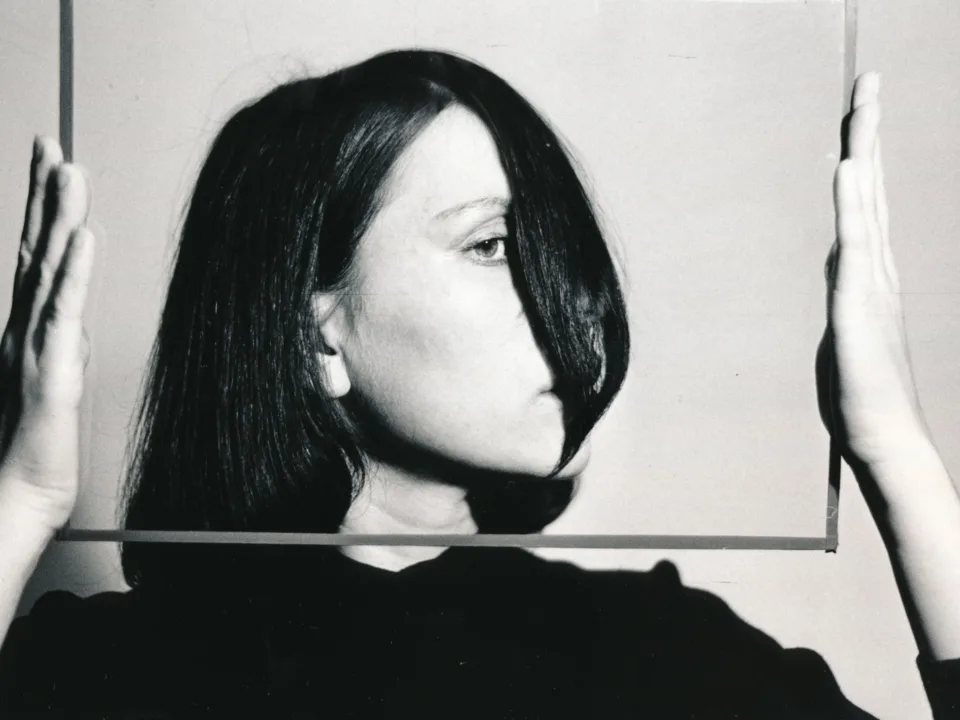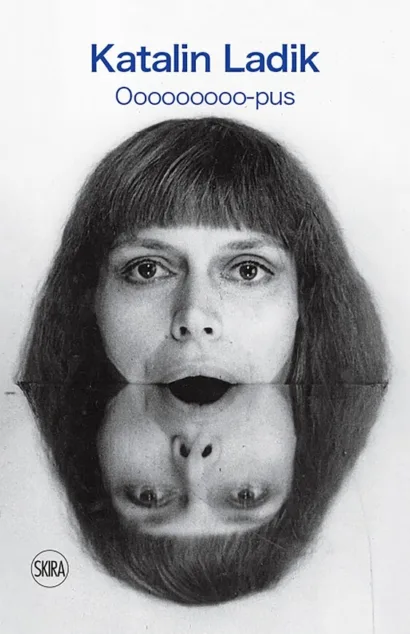About the exhibition catalogue
Katalin Ladik’s radical approach to concrete and visual poetry, sound, performance, and sculpture established her as a key figure in Central and Eastern European art.
Over the course of the 1960s, Ladik became an integral part of the literary and artistic avant-gardes of her birthplace Novi Sad (former Yugoslavia, now Serbia) as the only female artist in the male-dominated art world of the time. Her presence in Budapest from the early 1970s onward catalyzed a fully embodied turn towards visual art. Ladik increasingly merged visual poetry with experimental sound practice, positioning herself at the intersection of various established and new performance traditions, from theater and film to happenings, rituals, photoperformance, and television.
This illustrated monograph contextualises Ladik’s wide-ranging practice within post-war international discourses on (lens-based) performance, concrete and visual poetry, score- and instruction-based work, feminist histories, as well as the motifs of ritual and folklore in recent art.
Renowned artists, critics, and scholars from different generations and backgrounds including Diedrich Diederichsen, Hendrik Folkerts, Irena Haiduk, Ana Janevski, and Dieter Roelstraete contribute longer-form essays, while various experts such as Pierre Bal-Blanc, Fanny Hauser, Emese Kürti, Quinn Latimer, Bhavisha Panchia, Gloria Sutton, Sarah Johanna Theurer, Paolo Thorsen-Nagel, and Mónica de la Torre focus on a single work from Ladik’s oeuvre.
Katalin Ladik contributes a newly commissioned visual essay, highlighting particular images and source materials that have informed her foundational practice from the 1960s until the present day.
Edited by Hendrik Folkerts
With contributions by Diedrich Diederichsen, Hendrik Folkerts, Irena Haiduk, Ana Janevski, Dieter Roelstraete, Pierre Bal-Blanc, Fanny Hauser, Emese Kürti, Quinn Latimer, Bhavisha Panchia, Gloria Sutton, Sarah Johanna Theurer, Paolo Thorsen-Nagel, and Mónica de la Torre.
Published by Skira.
During the exhibition, the catalogue is available at the museum box office and the Walther König bookshop. Additionally, it can be ordered by mail at any time. Please contact us at versand@hausderkunst.de.

